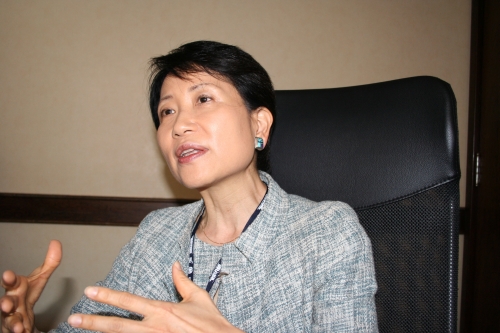Under the GPSC, the international community is investing over a billion dollar in the sustainable cities of the future

City leaders from around the world who met on Wednesday in Singapore, the island city-state off southern Malaysia, have launched the Global Platform for Sustainable Cities (GPSC), which is part of an initiative funded by the Global Environment Facility (GEF). The GPSC is expected to mobilise up to $1.5 billion over the next five years for urban sustainability programmes in 11 developing countries, including Brazil, Cote D’Ivoire, China, India, Malaysia, Mexico, Paraguay, Peru, Senegal, South Africa, and Vietnam.
Coordinated by the World Bank and supported by multilateral development banks, UN organisations, think tanks and various city networks, the GPSC is a knowledge sharing programme that will provide access to cutting-edge tools and promote an integrated approach to sustainable urban planning and financing. The GPSC will work with a core group of 23 cities, but will reach many more by sharing of data, experiences, ideas, and solutions to urban challenges, and by linking the knowledge to finance that will influence investment flows toward building cities’ long-term urban sustainability.
“If planned and managed well, compact, resilient, inclusive, and resource-efficient cities can drive development, growth, and the creation of jobs, while also contributing to a healthier, better quality of life for residents and the long-term protection of the global environment,” said Naoko Ishii, GEF CEO and Chairperson. “In a rapidly urbanising world, how we design and build the cities of the future will play a critical role in protecting the global commons, the planet’s finite environmental resources that have provided for the stable conditions enjoyed by humanity for thousands of years.”
By 2050, more than two billion more people will live in cities, a 50 percent increase from today, and the vast majority of this growth will take place in developing countries, mostly in Asia and Africa. The new Global Platform is designed to help mayors and other municipal leaders take more informed decisions in the day-to-day management of their cities, including improving access to clean water, energy, and transport, as well as efforts to mitigate climate change. It supports cities in pursuing evidence-based approaches to urban planning, including geospatial data, and establishing urban sustainability indicators.
“Linking knowledge to finance is critical to directing investment flows to quality and sustainability. We see this platform as a great opportunity to connect cities not only to cutting-edge knowledge, but also to development banks and financial institutions,” said Ede Ijjasz-Vasquez, Senior Director of the World Bank’s Social, Urban, Rural, and Resilience Global Practice. “The World Bank will work closely with the partner institutions and the existing city networks to build a broad cooperation to support cities in translating knowledge into action and investment.”
In particular, the GPSC will provide cities with ways to help confront issues like climate change, to which cities are uniquely vulnerable, as almost half a billion urban residents live in coastal areas, increasing their exposure to storm surges and sea level rise. Cities also consume over two-thirds of global energy supply, and are responsible for 70 percent of greenhouse gas emissions.
The products and services provided by the GPSC will include studies, workshops, and online data that will leverage existing expertise in order to promote an integrated approach to tackling complex, multi-sector issues. With common metrics and guidelines in place, the lessons learned from the initial 23 cities can also be shared with hundreds of other cities via a wide range of city networks and other partners.
The GPSC is the foundation of the wider GEF sustainable cities initiative that is expected to create a strong network of cities that will act as global ambassadors for urban sustainability planning, with tangible benefits at both the local and global levels. As a GEF partnership, the initiative, formally called the ‘Sustainable Cities Integrated Approach Pilot’, will involve city municipalities, GEF agencies, development entities, city networks, and technical institutions. Civil society organisations will also contribute.
It will be implemented by the World Bank in partnership with the African Development Bank, the Asian Development Bank, the Development Bank of South Africa, the Inter-American Development Bank, the United Nations Environment Programme, the United Nations Development Programme, and the United Nations Industrial Development Organisation.
The GPSC launch event was held during Singapore Urban Week, organised by the World Bank in partnership with the GEF and key partners in Singapore, including the Center for Liveable Cities and IE Singapore.

I wonder if any city in Nigeria is chosen a part of the pilot program for this well-thought out initiative. If not, attempt should be made to join the league of cities already chosen. Because of Nigeria’s not- so-visible best practice in urban development and planning, we are not always considered for participation in global initiatives(like this one) aimed at assisting cities in the developing countries, most especially in Africa, to benefit from new ideas, donor funds and technical assistance that would enhance quality of lives, improve service delivery, infrastructure and environmental sustainability in our often unplanned cities.